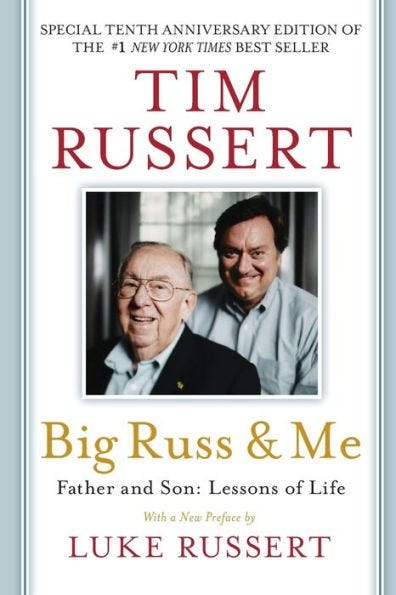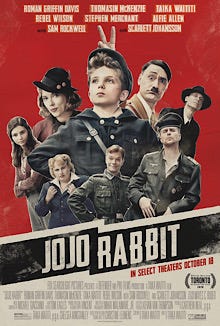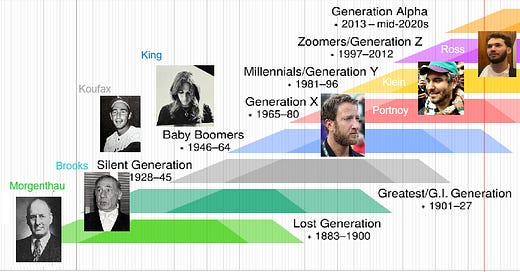@Stoolpresidente is living through a shattered mythology
Dave Portnoy is awakening to the seedy underbelly of free speech and doesn't like what he's seeing.
As a high schooler I used to spend hours in the public library looking up topics that ranged from the fantastic to the technical to the salacious. One book I picked up was well known as the handbook for mayhem and carnage: The Turner Diaries by Dr. William L. Pierce (writing under the pen name Andrew MacDonald) which is credited with being the inspiration for the Oklahoma City Bombing of 1995. It also inspired a string of violent robberies, bombings and murders a decade earlier in the Pacific Northwest and Colorado by a group called The Order. At the time what interested me was the unique perspective of the protagonist, a violent racial terrorist who was willing to commit any act against any person in the name of establishing an all white homeland in the United States. There simply wasn’t any other book like it, and that’s may have been its biggest selling point because it was otherwise clumsily written. Since then I’ve read other types of extremist literature, but few are as infamous as Turner Diaries. It seemed so foreign to me, growing up in public integrated schools that there would be people in America who would hold such views and commit such acts.
What I didn’t reckon with was that Pierce’s model of the racial warrior was a distilled caricature. Yes, there are people willing to engage in violent acts of terror in the hopes of ridding the USA of what they see as non-whites, but the average bigot is much less dedicated. I found this out in college in the early 2010’s where I experienced explicit and direct Jew hatred, not off-hand comments or zingers, but full on insults. I am told by someone who attended the same school more recently that it’s only gotten more intense there. Thankfully most of my professional life has been relatively uneventful.
Barstool Sports founder Dave Portnoy on the other hand is having a rough time of it, as he has to deal with the controversy of people yelling “F*ck the Jews” at him. This stems from an incident in May when Mo Khan, a Temple University student released a Tiktok video of him having the words displayed on a sign card at Barstool’s sports bar in Philadelphia. Portnoy’s first instinct was to reach out to Khan and others who were in the video and attempt a “teachable moment” of sending them to the Auschwitz death camp in Poland to learn about the history of anti-Jewish hatred. This was mild in comparison to his firing of the bar staff that had played a part in the stunt, but the offer was rescinded when Khan shirked responsibility for the gesture. More recently an unseen passerby seeing Portnoy taste testing a slice of pizza in Toronto yelled at him “f*ck the Jews”. Finally, on June 4 Portnoy got into a shouting match with Kirk Minihane, a Barstool Sports personality, over whether to platform an influencer who had mocked Portnoy over his response to the epithets. Portnoy was enraged at the suggestion, asking how many more Jews had to be shot or firebombed as in recent incidents in DC and Boulder, Colorado before it is understood that such jokes illustrate more than humour but ingrained attitudes by the person making them. His response gained much attention due to his unconcealed rage and contempt for Minihane, including berating him with insults and saying “you work for me”. The next day Portnoy clarified that his comments were not meant to support censorship in America, but rather criticize the timing of such statements. "This isn't about jokes in general," he said. "It's about the timing, the context, and intent."
It’s safe to say that Portnoy will not be hearing the last about this, and he and other prominent American Jews are getting a rude awakening about the reawakening of ancient prejudices that I have been observing for a long time. It is hard to blame him for being oblivious for so long, but now that he is finally starting to sit up and pay attention it is destroying his entire worldview.
The upsurge of Jew hatred is a matter of generational change that was almost bound to happen, but perhaps was accelerated by the political realities following the Oct. 7 Hamas attacks against Israel. In April 2024 The Atlantic, a bastion of the liberal establishment, published an article by Franklin Foer proposing that “the Golden Age of American Jews is Ending”. In it were some anecdotal cases of students in school systems like Berkeley and Oakland, California being taunted directly with “Free Palestine” chants. Or, in a scene I remember from my own college experience, having pennies or other change dropped in their vicinity to see if they’ll pick it up. Journalist and author Alex Berenson disclosed recently having to write to his daughter’s school to complain about her being harassed by a classmate constantly playing Kanye West’s recently released song “Heil Hitler”.
The Vanishing Father’s story
So why is it that each successive young cohort seems to be getting less friendly towards the Jews? A few days ago I listened to one intriguing explanation, which is that “the WWII myth is crumbling” (watch above). It was to my surprise a very well reasoned argument, and one that is meaningful to both Americans at large and Jewish Americans in particular. In this context the word myth is not used in the sense of a falsehood but rather a common cultural narrative transmitted from one generation to the next. The creator, a comic book artist and critic of popular culture, was making the point that the resonance of Nazis as being the ultimate evil had been inculcated in our culture during and after the postwar period.

It resonated well, because at that time those that served in the war and the people at home had the conflict at the top of their mind for the duration of the war and likely also when dealing with the aftershocks of it. Here is a demonstration of the sequence of how the narrative was transmitted in the postwar era:
The Greatest Generation (born 1900-27, term coined in 1953 by General James van Fleet) had served in the war and seen either first hand or through newsreels just how cruel and ruthless the Germans (or Japanese) had been. In terms of the Holocaust, the parallel of the same age group are those who were old enough to be adults during that period.
The next cohort, the Silent Generation (1927-45) that lived through the Great Depression and WWII as children were steeped in information about this from either their immediate elders or the mass media. Tom Brokaw, a member of the Silent Generation born in 1940 wrote a 1998 book called The Greatest Generation on the topic. They were often the children or younger siblings of the Greatest Generation, growing up with early hardships and seen as conformists.
The children of the Greatest Generation, Baby Boomers (born 1945-65), grew up hearing these stories from the laps of their fathers, but were not old enough to hear news about it when it happened. The quintessential example of this is the late host of Meet the Press Tim Russert whose autobiography put his WWII veteran father Joseph Russert in sharp focus as the key influence in his young life. It is also notable that the Boomer generation included a rebelious counterculture centered around opposing the Vietnam War that was a rejection of the mentality their WWII veteran parents or elders had believed in. Their attitudes toward WWII and the Holocaust were not necessarily ones of disillusionment, but they certainly began to doubt the government’s rationale for going to war again in Vietnam, and certainly distrusted authority having experienced the JFK assassination at a young age.
It was also during the time of the Baby Boomer generation that shows and movies like Hogan’s Heroes and The Producers began to take irreverent looks at WWII and the Nazi regime in Germany. Earlier movies like Sands of Iwo Jima portrayed the conflict in more stark terms, partly because many of the cast and crew had served in some capacity during the war or had peers that did. With each new generation the narrative was growing a little more stale, but at least for many the personal connection was still there.
Generation X (1965-1980) and Millennials (1981-96, including me) grew up learning about the the events in school, but they were more likely to know people that served in Vietnam, if they knew any war veterans at all. The topics of WWII and the Holocaust were still heavily covered in school, and veterans and survivors are still accessible in society, but at this point they are elderly and the world they describe is increasingly foreign to our experience. Media also fetishize the events with overproduced or caricaturised movies (Pearl Harbor, Inglourious Basterds), gaudy video games (Castle Wolfenstein), and increasing creative license to use them as metaphors.
The two most recent generations, Z (1997-2012) and Alpha (2013-today) are likely the last to have any possibility of having an in-person encounter with a WWII veteran or Holocaust survivor.

What does any of this have to do with why people are yelling F*ck the Jews at Portnoy? During this entire period since the war’s end in 1945 there had been various resurgences of historical revisionism, outright denial, and in some cases justification of the Holocaust in particular. Some of the earliest post-WWII neo-Nazis like George Lincoln Rockwell were veterans of the war, or like early revisionist David Hoggan belonged within that peer group. Their views cut against the grain of the shared experience of many of those peers and were seriously transgressive at the time. By contrast each generation after that found the collective memory of WWII and the Holocaust warped and misapplied in new ways. Taboos were broken due to the flippant and self-serving desire to capitalise on the most universally acceptable narrative and its imagery to the point where animal rights activists have called meat eaters and fur wearer Nazis, Jews and Arabs called each other Nazis, the police were portrayed as Nazis, and a president was characterized both seriously and satirically as being “literally Hitler”.
This doesn’t excuse reprehensible behaviour like Mo Khan’s, but it certainly shows a reconditioning that allowed it to become seen as an act of rebellion to insult the owner of a bar in his own establishment by applying a vulgar epithet to him and pretending to be the wronged party. I don’t have any good advice beyond that to any of our Jewish readers. I don’t think there’s a way to remedy this through the legal or political systems. For the moment so long as your coworkers skew to the older side, you’re more likely to be able to get along with them. However at some point they may retire and be replaced by some goosestepping Gigachad demanding you yell “Christ is King” while claiming that Glenn Greenwald’s sordid video was leaked by you to keep him silent on Palestine.





